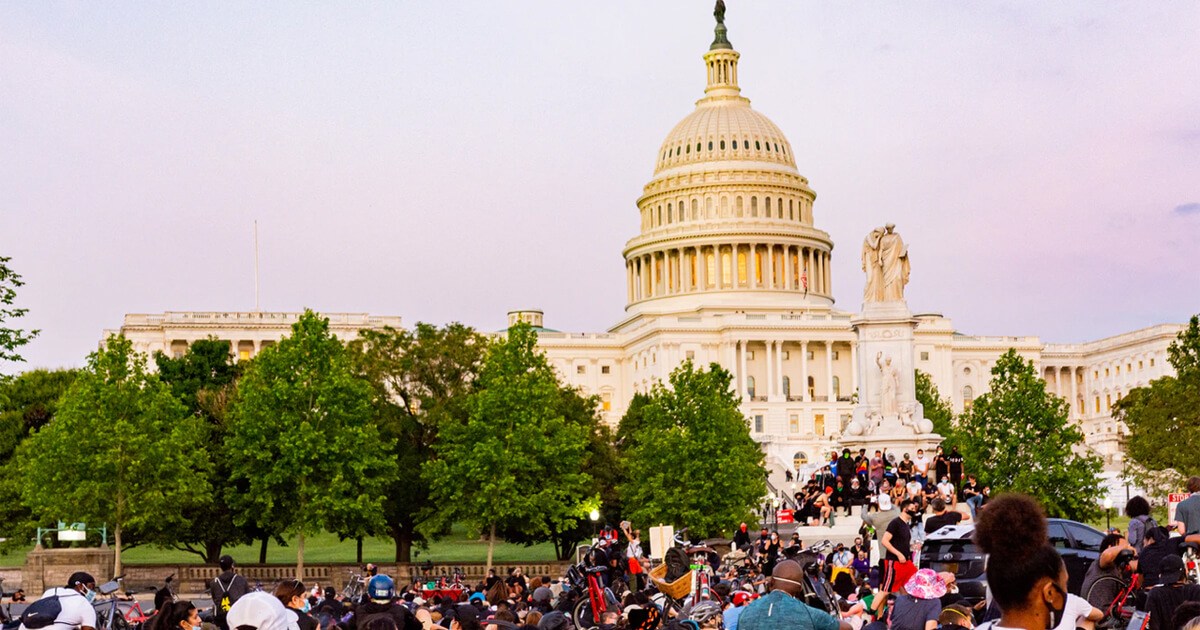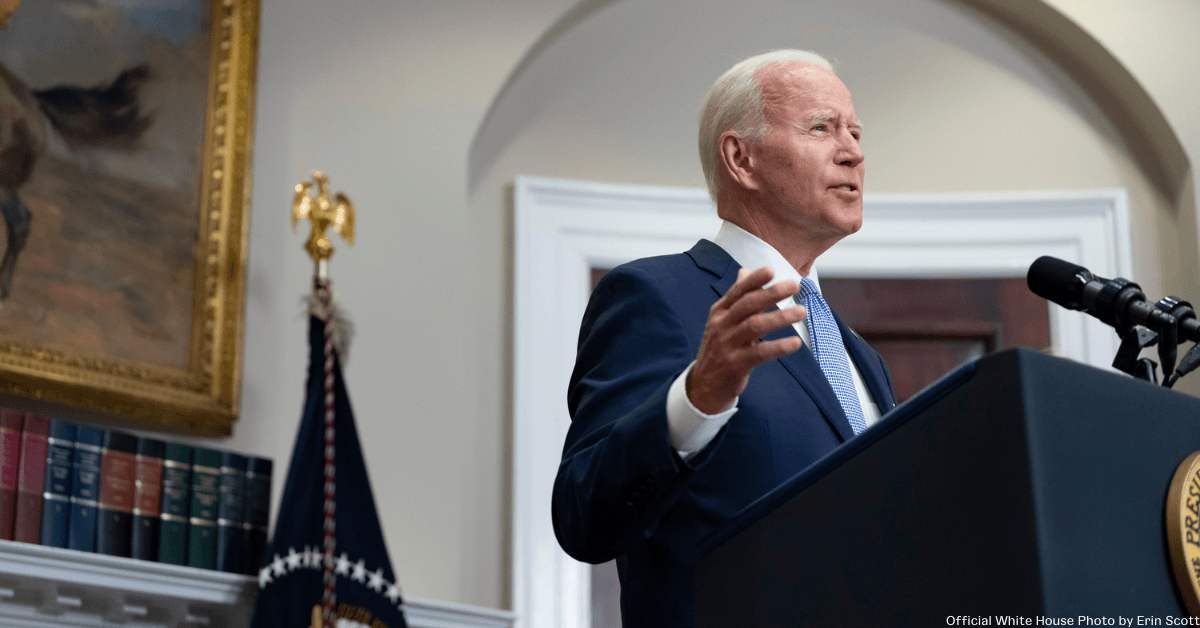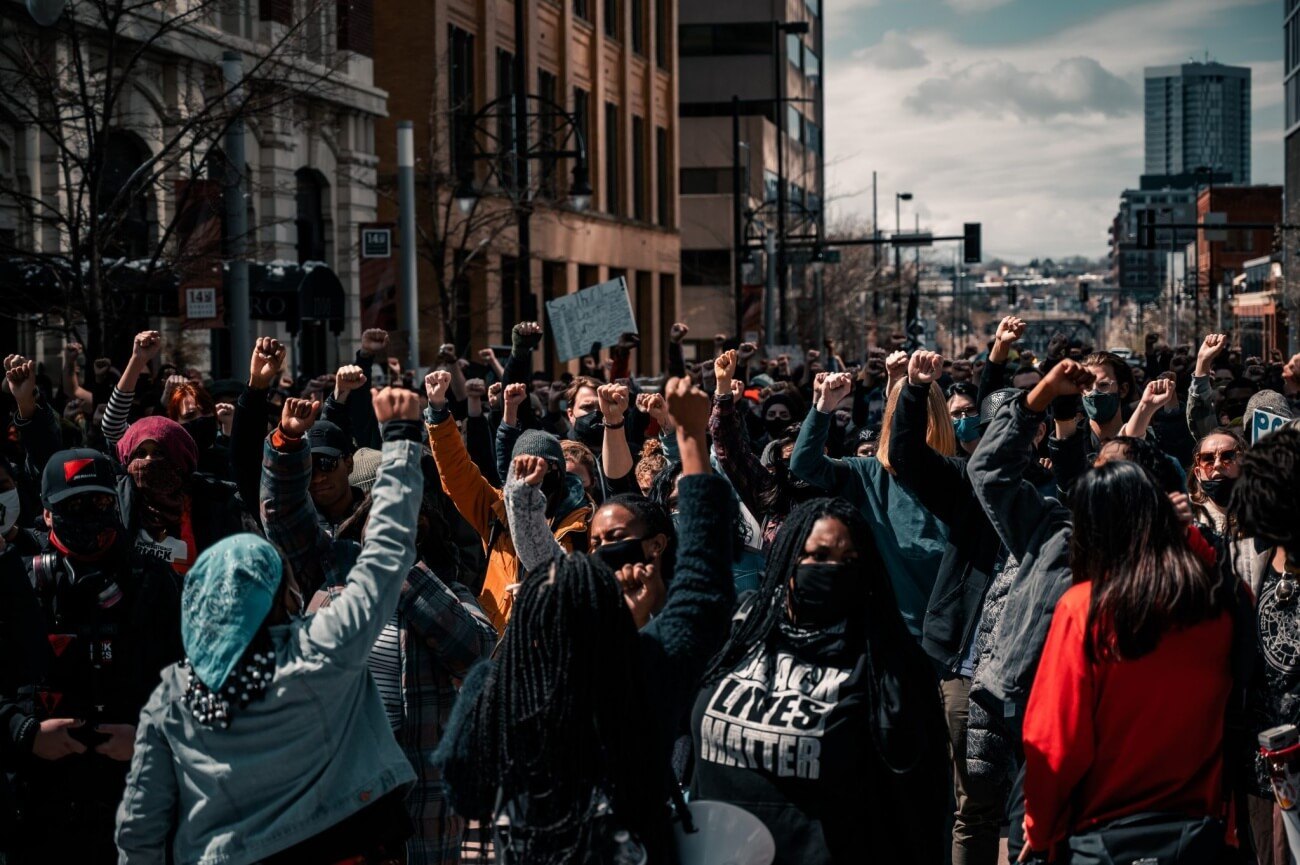Juneteenth has been officially made a federal holiday following a socially turbulent year after the murder of George Floyd mobilized Black Lives Matter supporters across the country. But criticism is now surrounding President Joe Biden as many consider the signing of the bill a “performative policy” while the needs of the Black community continue to be unaddressed.
Performative policies are symbolic gestures that attempt to appease the public’s desire for change instead of enacting laws that would facilitate meaningful change.
Dr. Kideste Yusef, department chair of Justice and Political Studies and assistant director of the Center for Law and Social Justice at Bethune Cookman University in Florida, considers establishing Juneteenth as a federal holiday as a performative policy, though she views it as an important step toward real change.
“We can have things like painting streets with Black Lives Matter or Democrats adorning kente cloth, kneeling as a reaction to George Floyd, but without having the actual passage of the George Floyd Justice and Policing Act, [the government] is engaging in this pacifying mechanism in order to not be required to address substantive change,” she told The Plug.
As Juneteenth, which commemorates the anniversary of the end of slavery in the U.S., is being made into a national holiday, a movement to censor the teachings of racism and the influences of slavery as a shaping factor in U.S. history and society is gaining traction.
Earlier this month, the Florida State Board of Education voted to ban the teaching of critical race theory in public classrooms at the behest of Florida Governor Ron DeSantis. Critical race theory was not being taught in any of Florida’s jurisdictions before the ban was put in place.
According to Yusef, the policy to censor critical race theory in Florida schools is performative in essence because it addresses a nonexistent problem.
Banning critical race theory “has structural implications for the future of our children and their education. It’s performative and substantive,” she said.
Just last week, a Virginia county school board meeting ended with two attendees being escorted out in handcuffs after a swarm of protestors disrupted a meeting to decide if critical race theory would be taught in Virginia’s Loudoun County. Hundreds of parents erupted into the room, claiming the schools were teaching children that racism is a systemic problem. The board denied ever having embraced critical race theory in public school teachings.
Robin Rue Simmons, executive director of First Repair and a commissioner at the National African American Reparations Commission (NAARC) and Evanston, Illinois Alderman, believes opposition to critical race theory across the country is contradictory to the movement toward “justice, reconciliation, and repair.”
“It is a distraction for those who are not ready yet to embrace liberty and justice for Black Americans,” Simmons told The Plug.
But Simmons said the enshrinement of Juneteenth as a national holiday is a substantive policy rather than performative, one that the Black community has committed to through years of work. It is a step toward what she calls “full repair,” which she equates to justice, as it honors Black heritage.
According to Simmons, there are five components to achieving full repair: compensation, restitution, satisfaction, rehabilitation, and cessation.
Simmons spearheaded one of the most substantive policies in recent history: the first-ever reparations bill to be passed in the U.S. at the local level, which was passed in Evanston, Illinois. The racial disparities found in Evanston caused her to take action to mitigate the inequality gaps found in housing, income, life expectancy, and other quality of life measures.
“Every year, as we celebrated Black History Month and passed budgets that continue to fund programming we viewed as ‘equitable’, we continued to sustain our racial divide,” Simmons said.
“Much like the conversation around Juneteenth, we had many other important resolutions that had been passed without any repair and measure of that repair were largely ceremonial,” she said.
According to Simmons, legislative action is the only way to minimize the racial disparities for Black citizens in Evanston and the U.S.. She optimistically looks to H.R. 40, which would establish the Commission to Study and Develop Reparation Proposals for African Americans Act, to achieve reparations at the federal level.
Both Yusef and Simmons remain hopeful that the current social and political climate in the U.S. will produce pro-POC policies like reparations and even legislation in favor of critical race theory rather than against it.
In a time when mobilization inside the Black community and its allies is heightened, it is vital to combat the discriminatory policies, performative or not, that seek to stunt the mobilization.
Simmons encourages leaders, whether at the grassroots level or legislators and everything in between, to begin the work.
“There is no shortage of opportunity and need to repair the Black community; full repair will happen when we have all hands on deck and when we have a participatory nation,” she said.
Sponsored Series: This reporting is made possible by the The Ewing Marion Kauffman Foundation
The Ewing Marion Kauffman Foundation is a private, nonpartisan foundation based in Kansas City, Mo., that seeks to build inclusive prosperity through a prepared workforce and entrepreneur-focused economic development. The Foundation uses its $3 billion in assets to change conditions, address root causes, and break down systemic barriers so that all people – regardless of race, gender, or geography – have the opportunity to achieve economic stability, mobility, and prosperity. For more information, visit www.kauffman.org and connect with us at www.twitter.com/kauffmanfdn and www.facebook.com/kauffmanfdn.








